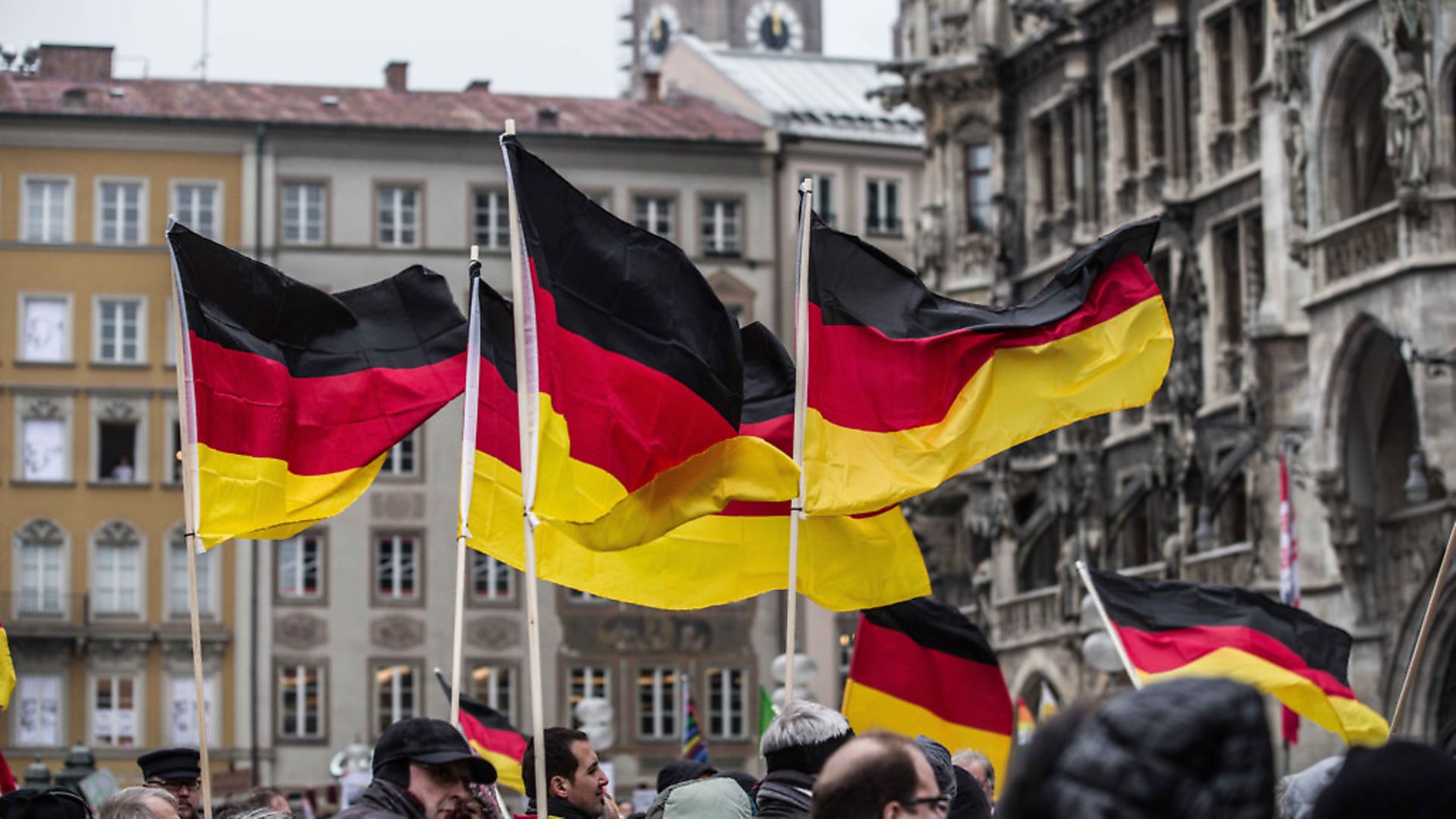
PETER MILLAR reports from the region which could yet trigger Merkel’s downfall
We were standing in Neuhauser Strasse, Munich’s busiest shopping street, awash as always with busy locals and the now commonplace smattering of migrants, mostly from Syria and the Miiddle East.
‘Look at that,’ said Dieter, my Berlin friend. ‘I’ve never understood why they dress like that. Its like making some sort of ethnic statement.’ I followed his gaze, as did a woman standing near us in long dress with trousers beneath covering her legs to her ankles and a headscarf wrapped tightly over her hair.
It was not her apparel that attracted Dieter’s attention but that of a couple opposite: decidedly homegrown Bavarians, he in knee-length Lederhosen with braces and thick woollen knee socks, she in dirndl dress complete with apron and a décolleté cleavage that called out for a Wonderbra.
Traditional dress – Trachten as it is known – is practically Bavaria’s trademark, to the extent that cheap versions, often made in China in inferior materials, are adopted annually by tens of thousands of foreign visitors to the Oktoberfest, before being buried in drawers as a blurred memory of an inebriate purchase.
It is not worn anywhere else in Germany. In Berlin leather trousers are more likely to be skin-tight and black. Or possibly pink. Most Germans regard Bavaria as something of an aberration. And most Bavarians are proud of it, as they are proud of the one-litre (Mass) beer glasses that are also all but unique to Bavaria.
Most Germans joke about Bavaria’s fetish for tradition. They quip that In Bayern geh’n die Uhren anders (‘in Bavaria the clocks go differently’). The Bavarians take it in good heart and in 2005 reacted by installing on one side of the mediaeval city gate a clock that runs backwards.
Of the 16 states that make up modern Germany, Bavaria alone has kept is historical borders largely intact, not just since the major reorganisation post 1945, but since the days before 1871 when it was an independent kingdom and indeed had been a minor European power in its own right for centuries.
Those looking to imagine a European independence epidemic, à la Scotland and Catalonia, spreading to Germany, often cite Bavaria as a potential candidate, noting the example of the next-door Austrians who have similar customs and an almost identical accent.
In fact when the victorious Allies were deciding the fate of the defeated countries at the end of the Second World War, at Potsdam in 1945, they fleetingly considered creating a ‘south German’ state combining the two, before giving Austria a ‘get out of jail free’ card as a Nazi victim.
Bavaria’s special status in the reconstituted Germany manifested itself in the creation of a separate centrist-conservative party – the Christian Social Union (CSU) – which would be a close ally but not identical to the Christian Democratic Union (CDU) in the rest of the country.
Bavarians are not so much tempted by any form of separatism, rather a devout wish that the rest of Germany was more like them. What Bavaria primarily shares with Austria is a political determination not to have to bear the brunt of Angela Merkel’s open arms attitude to asylum seeking migrants arriving from the south.
Bavaria is not just the first part of Germany that migrants who have crossed the Mediterranean are likely to set foot in; it is also the richest part of the country and has the best weather. To many fleeing warmer climes, there is little incentive to move north to colder and wetter cities such as Berlin or Hamburg.
It was no surprise that when Merkel finally managed to cobble together a coalition government this spring that CSU leader, Horst Seehofer, Bavaria’s prime minister for the past decade and a staunch opponent of her ‘open arms’ refugee policy should choose as his fiefdom the Ministry of the Interior.
Seehofer, with support from the right wing Austrian government, has insisted on tighter controls on borders where there is risk of an influx of migrants and set annual quotas. Whether or not it can be made to work without permanently damaging the Schengen open frontiers agreement remains to be seen.
Meanwhile his successor in Munich, Markus Söder, has caused controversy by insisting that every public building in deeply Catholic Bavaria, birthplace of the previous pope Benedict XVI, must now display a Christian cross. Accused of being ‘Islamophobic’, Söder has insisted, to satirical and critical response, that the cross is not there as a religious symbol, but a cultural one. Just like Trachten.







